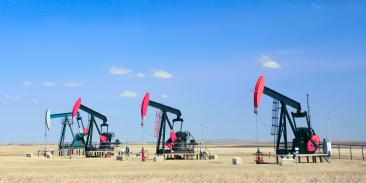Hurricane Dorian’s Lesson for Puerto Rico: Invest Now in a Cleaner, More Resilient Energy System Before the Next Storm
Statement from Daniel Whittle, Senior Director, Caribbean Initiatives, Environmental Defense Fund
(NEW YORK, NY) Heavy rains and high winds pelted Puerto Rico yesterday as Hurricane Dorian glanced the island, sending a stark reminder of the urgent need to invest in a more resilient, distributed energy system before the next storm hits.
Thankfully, Puerto Rico emerged relatively unscathed from the Category 1 storm, which tested the island’s readiness just two years after Hurricane Maria caused widespread power outages and water shortages that plagued residents for nearly two years in some places. Although no major power outages or water shortages have been reported from Dorian, there remains a dire need to shift to a more distributed, clean electricity system that will keep the lights on for all Puerto Ricans facing more frequent and extreme weather due to global warming. Hurricane Dorian continues to gain strength as a Category 4 storm as it drives toward the Bahamas and Florida.
“Hurricane Dorian was a great exercise for Puerto Rico to demonstrate its preparedness just two years after Maria. But we cannot wait until the next storm hits to revisit the urgency of investing in a more distributed, clean energy system. Local leaders must begin now to develop more reliable and affordable energy in communities, including low-carbon microgrids, which are linked to the main grid, but also designed to function independently to provide local electricity during emergencies like hurricanes. We must change the rules that regulate how microgrids are built and paid for, develop a policy that promotes the economic and environmental value of low-carbon, renewable energy microgrids, and encourage private and public financing that match the individual needs of each unique community. Lives are depending on it.”
- Daniel Whittle, Senior Director, Caribbean Initiatives
Environmental Defense Fund is developing an innovative project to demonstrate the feasibility of low-carbon microgrids. Microgrids act as mini-energy service stations that “fuel up” on solar energy and incorporate battery storage and intelligent software. Linked to the larger grid — ensuring the delivery of affordable, clean and reliable energy everyday — these systems will be designed to separate from the larger grid during emergencies, like Hurricane Dorian, and function independently to keep the lights on in remote parts of the island. For more information, visit www.edf.org/PuertoRico.
With more than 3 million members, Environmental Defense Fund creates transformational solutions to the most serious environmental problems. To do so, EDF links science, economics, law, and innovative private-sector partnerships to turn solutions into action. edf.org
Media Contact
Latest press releases
-
Washington State, California and Québec Release Draft Agreement to Link Cap-and-Invest Programs
March 3, 2026 -
Public Interest Groups Go to Court to Halt Trump Administration Order to Keep Washington’s Last Coal Plant Operating
March 3, 2026 -
U.S. Judge rules New York’s congestion pricing program can continue
March 3, 2026 -
Environmental Defense Fund announces first grantees in SRM research program
March 2, 2026 -
Apple Watch carbon neutral court ruling sets guardrails for greenwashing litigation
February 26, 2026 -
New Proposal in Congress Would Gut Key Provisions of Landmark Chemical Safety Law, Putting Families’ Health at Risk
February 26, 2026











